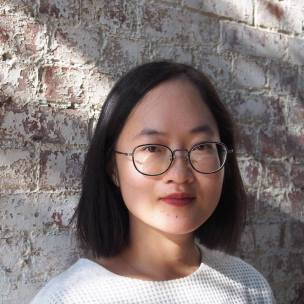ALTA is pleased to announce the winners of the 2019 Travel Fellowships, including the fourth annual Peter K. Jansen Memorial Travel Fellowship! Each year, ALTA provides four to six $1,000 fellowships to emerging translators to attend the annual ALTA conference. This year’s winners were selected by judging panel Marci Calabretta Cancio-Bello, J. Kates, Sandra Kingery, and Thomas Hitoshi Pruiksma.
This year, we’re spotlighting each of our five stellar Travel Fellows the final week of National Translation Month. Today, we offer congratulations to 2019 Travel Fellow, Anni Liu:
 They say writing is a lonely activity. If that’s true, then translation is one way out of that loneliness. For a heritage seeker like Anni Liu, who left Mainland China as a child and has only been back once, translation can be a way out of another kind of loneliness as well.
They say writing is a lonely activity. If that’s true, then translation is one way out of that loneliness. For a heritage seeker like Anni Liu, who left Mainland China as a child and has only been back once, translation can be a way out of another kind of loneliness as well.
Anni did not begin translating until beginning her MFA in Creative Writing at Indiana University, Bloomington. It was there that a friend connected her with Bill Johnston, who has since then become a mentor and friend. In the very beginning, Anni found a number of poets she admired, but none who she felt she herself must translate—that is until someone gave her the poems of a contemporary female poet named Du Ya. That feeling of being moved to feel in a new way, which is so important to poetry in any language, made clear that this was work worth doing, no matter how slow.
Since then, Anni has translated a number of poems from the Du Ya’s two volumes of selected poems. Du Ya’s work is driven by longing, attentive to the landscape and life of the poet’s native Henan, and keenly attuned to spiritual and metaphysical questions. Du Ya herself, despite being the recipient of multiple Chinese Literature awards such as the Lu Xun Prize, is something of a hermit: she rarely uses the computer and has no online presence whatsoever. Her work undermines the contemporary practices of hyper-modernization and disaster capitalism. Her themes, images, and rhythms often mirror those of classical Chinese poetry, but they do so in a way that reminds us of the importance of history, the power of natural cycles, and our own rootedness to our context(s).
Alongside the endless aesthetic decisions of the translation process, the questions of what it means to translate into English—the language of globalization and capitalism and now Anni’s native tongue—and who is involved in the process are never far from Anni’s mind. She will continue her current project of translating Du Ya’s poetry while seeking out other contemporary poets from China whose work might reshape both our aesthetic and social landscapes.
Stay tuned as we spotlight our Travel Fellows this week!
If you love the Travel Fellowships and supporting emerging translators, we hope you’ll donate to ALTA’s fall campaign. Any donation from $5 to $5,000 will help ensure that ALTA will be around to support future generations of emerging translators, like our stellar Travel Fellows!
